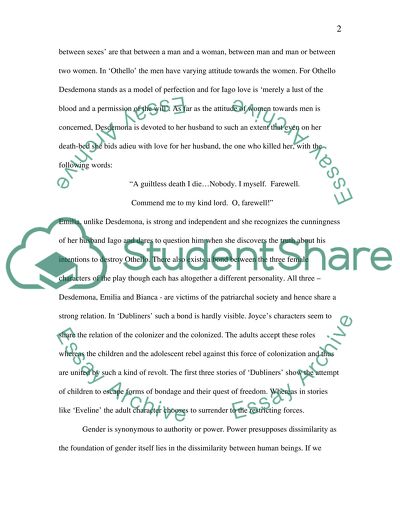Cite this document
(“Dubliners by James Joyce and Shakespeares Othello Book Report/Review”, n.d.)
Retrieved de https://studentshare.org/literature/1513450-dubliners-by-james-joyce-and-shakespeares-othello
Retrieved de https://studentshare.org/literature/1513450-dubliners-by-james-joyce-and-shakespeares-othello
(Dubliners by James Joyce and Shakespeares Othello Book Report/Review)
https://studentshare.org/literature/1513450-dubliners-by-james-joyce-and-shakespeares-othello.
https://studentshare.org/literature/1513450-dubliners-by-james-joyce-and-shakespeares-othello.
“Dubliners by James Joyce and Shakespeares Othello Book Report/Review”, n.d. https://studentshare.org/literature/1513450-dubliners-by-james-joyce-and-shakespeares-othello.


